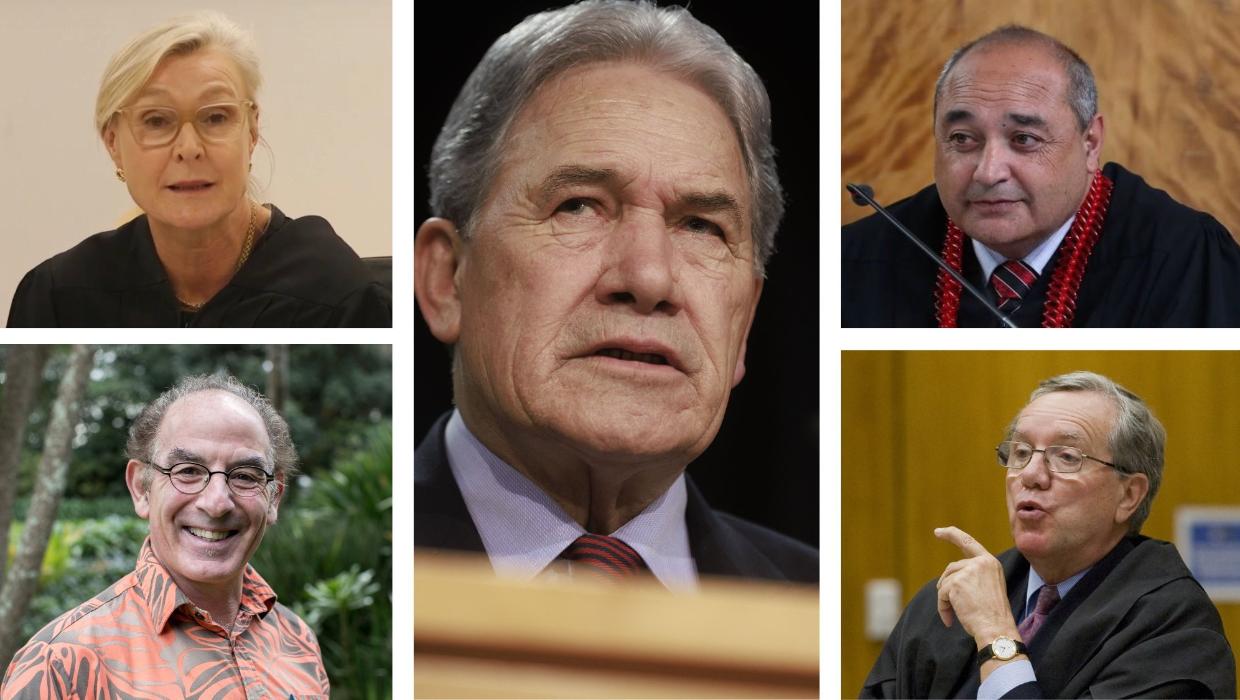Politics
High-Powered Panel Investigates Judge Ema Aitken’s Conduct

A high-powered panel has been established to investigate the conduct of District Court Judge Ema Aitken, who recently faced scrutiny for allegedly attending an event without proper invitation, commonly referred to as “gatecrashing.” The investigation, announced on March 15, 2024, aims to address concerns regarding the judge’s professional behavior and uphold judicial standards.
The panel comprises distinguished figures, including a former Governor-General, two senior judges, and a prominent King’s Counsel (KC). This diverse group is tasked with reviewing the circumstances surrounding Judge Aitken’s actions, ensuring a thorough and impartial examination of the facts.
Composition of the Investigation Panel
Among the panel members is the former Governor-General, whose experience in high office lends significant weight to the investigation. The inclusion of two senior judges ensures that the review process will be conducted with legal expertise and a clear understanding of judicial conduct standards. The top KC brings a wealth of legal knowledge and experience, further reinforcing the panel’s credibility.
The investigation was prompted by public unease regarding the integrity of judicial positions and the necessity for transparency within the legal system. The panel’s findings are expected to play a crucial role in determining whether Judge Aitken’s conduct warrants any disciplinary action or if she will continue in her role without further repercussions.
Potential Implications for the Judiciary
The outcome of this investigation could have significant implications for the judiciary in New Zealand. If the panel finds that Judge Aitken’s actions compromised her ability to serve impartially, it may lead to broader discussions about accountability and ethical standards among judges. Maintaining public trust in the legal system is essential, and ensuring that judges adhere to high professional standards is pivotal in achieving this goal.
The investigation is scheduled to commence shortly, with the panel expected to conduct interviews and gather evidence over the coming weeks. The results will be made public, aiming to enhance transparency in judicial proceedings and reaffirm the commitment to ethical conduct within the legal community.
In the wake of this situation, legal experts and commentators have emphasized the importance of upholding the integrity of the judiciary. The panel’s findings could serve as a precedent for future cases involving judicial conduct and public accountability.
As the investigation unfolds, stakeholders across the legal system will be watching closely to see how this situation develops and what it may mean for the future of the judiciary in New Zealand.
-

 World3 weeks ago
World3 weeks agoPrivate Funeral Held for Dean Field and His Three Children
-

 Top Stories3 weeks ago
Top Stories3 weeks agoFuneral Planned for Field Siblings After Tragic House Fire
-

 Sports3 months ago
Sports3 months agoNetball New Zealand Stands Down Dame Noeline Taurua for Series
-

 Entertainment3 months ago
Entertainment3 months agoTributes Pour In for Lachlan Rofe, Reality Star, Dead at 47
-

 Entertainment2 months ago
Entertainment2 months agoNew ‘Maverick’ Chaser Joins Beat the Chasers Season Finale
-

 Sports3 months ago
Sports3 months agoSilver Ferns Legend Laura Langman Criticizes Team’s Attitude
-

 Sports1 month ago
Sports1 month agoEli Katoa Rushed to Hospital After Sideline Incident During Match
-

 Politics2 months ago
Politics2 months agoNetball NZ Calls for Respect Amid Dame Taurua’s Standoff
-

 World4 weeks ago
World4 weeks agoInvestigation Underway in Tragic Sanson House Fire Involving Family
-

 Entertainment1 week ago
Entertainment1 week agoJacinda Ardern Discusses Popularity Decline on Graham Norton Show
-

 Sports2 weeks ago
Sports2 weeks agoEli Katoa Shares Positive Recovery Update After Brain Surgery
-

 Top Stories3 weeks ago
Top Stories3 weeks agoShock and Grief Follow Tragic Family Deaths in New Zealand








